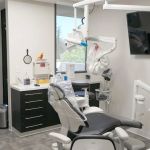- 1-Common-Causes-of-Persistent-Oral-Bad-Breath
- 2-Role-of-Oral-Hygiene-in-Preventing-Bad-Breath
- 3-Medical-Conditions-That-Contribute-to-Chronic-Halitosis
- 4-Impact-of-Diet-and-Lifestyle-on-Breath-Freshness
- 5-Effective-Solutions-and-Treatment-Options
- 6-Personalized-Care-and-Professional-Advice
1. Common Causes of Persistent Oral Bad Breath
Persistent oral bad breath, medically known as chronic halitosis, affects millions worldwide and can be a source of social embarrassment and reduced confidence. Understanding the causes is the first step toward effective care. The most frequent cause stems from bacterial buildup on the tongue, teeth, and gums, where volatile sulfur compounds are produced, resulting in unpleasant odors.
Poor oral hygiene, such as infrequent brushing and flossing, allows food particles to remain, feeding bacteria and exacerbating the problem. Other causes include dry mouth, which limits saliva's natural cleansing ability, and infections such as periodontal disease. Certain medications and tobacco use can also contribute to persistent bad breath by altering the oral environment.
1.1 Bacterial Growth and Its Role
The anaerobic bacteria that thrive in low-oxygen environments within the mouth produce foul-smelling sulfur compounds. These bacteria tend to colonize the tongue’s back surface and periodontal pockets, especially when oral hygiene is lacking.
2. Role of Oral Hygiene in Preventing Bad Breath
Effective oral hygiene practices are crucial for controlling persistent oral bad breath. Regular brushing, at least twice daily, helps remove plaque and food debris. Flossing cleans interdental spaces, which are breeding grounds for bacteria.
Additionally, cleaning the tongue with a scraper or brush can reduce the bacterial load significantly. Mouth rinses with antibacterial properties also aid in temporarily reducing bad breath. However, these practices must be consistent to maintain breath freshness.
2.1 Importance of Regular Dental Checkups
Professional dental cleanings and examinations detect and treat underlying conditions such as gum disease or cavities that may contribute to bad breath. Dentists can offer personalized advice tailored to an individual's oral health needs.
3. Medical Conditions That Contribute to Chronic Halitosis
While most cases of bad breath originate in the mouth, some stem from systemic health issues. Conditions such as sinus infections, respiratory tract infections, diabetes, gastrointestinal disorders, and liver or kidney disease can cause persistent bad breath.
For example, gastroesophageal reflux disease (GERD) allows stomach acids and gases to escape into the mouth, producing unpleasant odors. Identifying and managing these underlying health issues are critical to effectively addressing bad breath.
3.1 When to Seek Medical Advice
If oral hygiene improvements do not resolve bad breath, consulting a healthcare professional is advised to investigate possible systemic causes and receive appropriate treatment.
4. Impact of Diet and Lifestyle on Breath Freshness
Dietary habits and lifestyle choices profoundly affect oral breath quality. Foods rich in sulfur, such as garlic and onions, are notorious for causing temporary bad breath. Alcohol consumption and smoking not only introduce odors but also dry the mouth, reducing saliva and facilitating bacterial growth.
Staying hydrated helps maintain saliva flow, which naturally cleanses the mouth. Balanced nutrition supports oral and overall health, contributing to fresher breath.
4.1 Behavioral Changes to Improve Breath
Quitting smoking, reducing alcohol intake, and avoiding strong-smelling foods before social events can make a noticeable difference. Chewing sugar-free gum stimulates saliva production and can temporarily mask odors.
5. Effective Solutions and Treatment Options
Addressing persistent oral bad breath involves a multifaceted approach. Beyond improving oral hygiene, professional treatments such as periodontal therapy, tongue cleaning techniques, and prescription mouthwashes may be necessary.
In cases linked to medical conditions, treating the root cause is essential. Innovations in dentistry now include specialized breath analyzers for diagnosis and customized care plans.
5.1 Over-the-Counter vs. Professional Care
While many over-the-counter products offer temporary relief, sustained results often require professional intervention. A combination of self-care and dental guidance yields the best outcomes.
6. Personalized Care and Professional Advice
Each individual’s experience with persistent oral bad breath is unique, requiring tailored care strategies. Dentistry professionals can provide comprehensive evaluations to identify causes and recommend personalized treatment plans that may include lifestyle modifications, specialized cleaning, and ongoing monitoring.
One patient story involves a young professional who struggled with bad breath despite diligent brushing. After a detailed dental assessment at Dentistry Toothtruth, she discovered underlying gum disease and received targeted therapy, dramatically improving her breath and confidence.
For anyone facing persistent oral bad breath, seeking expert advice from trusted dental providers like Dentistry Toothtruth can make a significant difference. Their range of products and services is designed to address diverse needs and help restore fresh breath effectively.
Addressing the causes of persistent oral bad breath and applying the right solutions can transform daily interactions and improve quality of life. To learn more about effective care options, visit Dentistry Toothtruth and take the first step toward fresh, confident breath today.







 Larchmont Family Dental5.0 (532 review)
Larchmont Family Dental5.0 (532 review) Matthew J. Walters DDS0.0 (0 review)
Matthew J. Walters DDS0.0 (0 review) Dalley R Lindsey DDS5.0 (22 review)
Dalley R Lindsey DDS5.0 (22 review) Dr. Ilya Lipkin Orthodontics4.0 (178 review)
Dr. Ilya Lipkin Orthodontics4.0 (178 review) Bay Area Prosthodontics5.0 (3 review)
Bay Area Prosthodontics5.0 (3 review) Lincoln Dental4.0 (755 review)
Lincoln Dental4.0 (755 review) The Importance of Oral Health Education During Pregnancy for a Healthy Pregnancy
The Importance of Oral Health Education During Pregnancy for a Healthy Pregnancy Best Tips for Brushing Your Teeth Properly for Healthy Gums: Essential Techniques for Oral Health
Best Tips for Brushing Your Teeth Properly for Healthy Gums: Essential Techniques for Oral Health Why Skipping Dental Checkups Can Lead to Bigger Oral Health Problems
Why Skipping Dental Checkups Can Lead to Bigger Oral Health Problems Advantages of Porcelain Dental Restorations
Advantages of Porcelain Dental Restorations How Can Diabetes Cause Tooth and Gum Problems? Preventing and Managing Oral Health Issues
How Can Diabetes Cause Tooth and Gum Problems? Preventing and Managing Oral Health Issues Healthy Habits for Promoting Good Oral Health and Hygiene: Tips for a Healthy Smile
Healthy Habits for Promoting Good Oral Health and Hygiene: Tips for a Healthy Smile